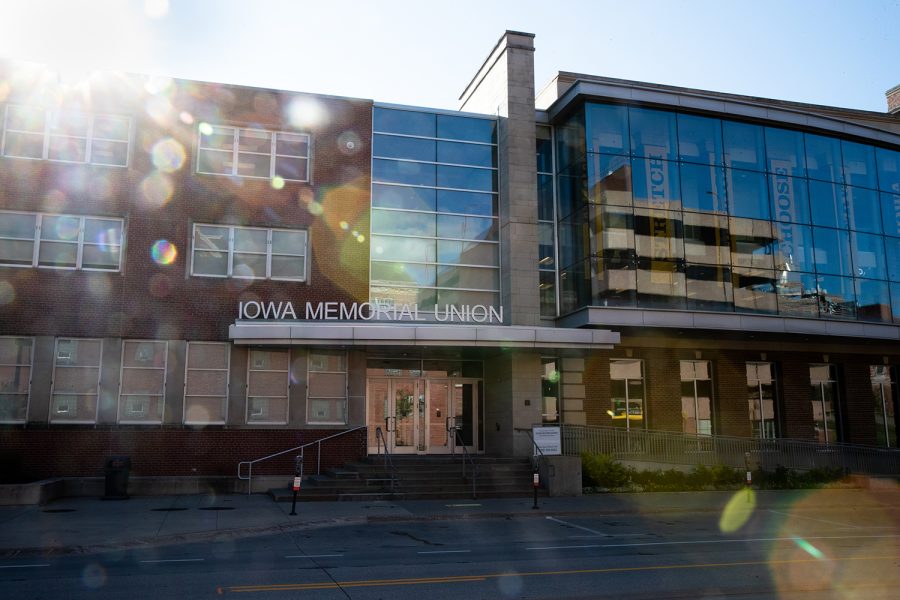Professors discuss Russia-Ukraine war after year of conflict in UI panel
Professors from universities in the Midwest discussed the Russia-Ukraine war in an event put on by UI’s European Studies Group at the Iowa Memorial Union Friday.
The Iowa Memorial Union is seen on Sunday, Aug. 28, 2022.
February 25, 2023
A group of professors from universities around the Midwest discussed at the University of Iowa Friday the implications of the first year of the Russia-Ukraine war.
In the Iowa Memorial Union, five professors of political science and sociology sat on the panel, “A Year of War: Commemorating the Anniversary of Russia’s Invasion of Ukraine.” The academics spoke on topics such as the war’s events, whether the war should be categorized as genocide, and where the war may head in the future.
Marina Zaloznaya, UI associate professor and director of the European Studies Group, moderated the panel.
The war in Ukraine officially started on Feb. 24, 2022, when Russia invaded Ukraine and violated the country’s sovereignty. However, the conflict between the two regions permeated for a much longer amount of time; the most notable being the annexation of Ukraine’s Crimean Peninsula in 2014.
While Russian President Vladimir Putin expected a swift victory in only a matter of days, the Ukrainians have proved to be stiff resistance as the war has lasted for over a year.
The European Studies Group invited panelists including:
- Scott Gehlbach, a professor in the department of political science and the Harris School of Public Policy at the University of Chicago.
- Cynthia Buckley, a professor of sociology at the University of Illinois Urbana-Champaign, whose work centers on issues of population, social equity, and development in Eurasia.
- Ted Gerber, Conway-Bascom professor of sociology at the University of Wisconsin-Madison and director of the University of Wisconsin’s Center for Russia, East Europe, and Central Asia.
- William Reisinger, UI professor of political science, whose research concerns politics in the former communist states, especially Russia.
Buckley was the first of the panelists to say the word genocide when referring to the conflict.
“When it’s not a battle over contested territory as much as it is a fairly large land grab and a fairly genocidal rhetoric coming from Putin and that changes the decision making. That does not mean, however, that there is unity on all issues,” Buckley said.
Zaloznaya said she was hesitant to classify the war as genocide because of the difficulties of identifying genocide acts when they are happening.
“The Geneva Convention actually obliges United Nations members to intervene when there is a recognition of a genocide that’s part of the reason why very few things have been actually called genocide while they’re happening,” Zaloznaya said.
The panel was asked their opinion on whether there is a possibility Russia would decolonize in the near future, meaning that Russia would revoke its imperialist government structure and agendas. All the panelists were less than optimistic about the chances of this happening.
Gerber focused on the political culture of the Russian people as a reason why fighting Putin at home is so challenging.
“The political scientists have this idea of individual efficacy, the notion that people have in some cases if they can affect their destiny, they can take actions to affect their lives, they can be agents,” Gerber said.
Gerber said Russian culture is reinforcing powerlessness in its citizens.
“I think that’s one thing that is fairly commonly and accurately understood to be lacking a lot in Russian individual experiences … It reinforced that sense of powerlessness, convincing Russians that they can’t affect anything,” Gerber said.



